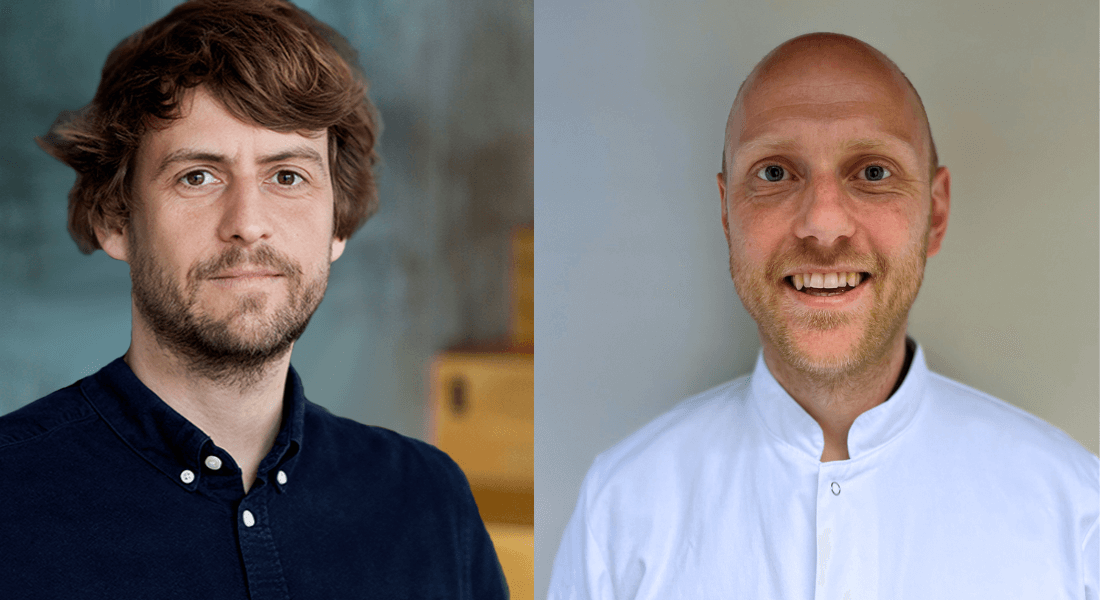Younger researchers receive DFF-grants to explore their best ideas
Assistant Professor Peter C. Petersen and Associate Professor Andreas Mæchel Fritzen each receive more than DKK 6 million for exploring some of their best ideas.

A total of 336 researchers have applied for a Sapere Aude: DFF Research Leader grant, but only 38 have received funding.
Two of them are from SUND: Associate Professor Andreas Mæchel Fritzen from Endocrinology and Metabolism and Assistant Professor and Team Leader Peter C. Petersen from the Department of Neuroscience.
Their research projects have undergone extensive assessment starting with a preliminary review by an international panel.
This was followed by a more detailed assessment by the Fund’s scientific research council and finally an interview conducted by a Fund committee. Subsequently, 38 new Sapere Aude: DFF Research Leaders were selected, and they have each received around DKK 6 million for their research projects.
Heart Failure and coconut oil
Associate Professor Andreas Mæchel Fritzen has received almost DKK 6.2 million for the research project “Cardiovascular and metabolic effects of medium-chain fatty acids in heart failure”.
He will be exploring heart failure, which is a chronic, life-threatening condition. More than 60,000 Danes suffer from heart failure.
Infusion of ketone bodies can improve heart function in heart failure patients, but regular infusion of ketone bodies in hospital is not a viable solution.
“Pilot studies have shown that ingestion of a particular type of fat, so-called medium-chain fatty acids, present in coconut oil and to a lesser extent in milk naturally increases the blood’s ketone body level. Some of these fatty acids enter the blood and constitute an optimal fat source for the heart and can prompt the liver to release positive signalling molecules,” Andreas Mæchel Fritzen says.
His project will therefore investigate whether the intake of medium-chain fatty acids improves heart function in heart failure patients and analyse the underlying mechanisms.
The brain's spatial memory
Assistant Professor and Team Lead Peter C. Petersen from the Department of Neuroscience has also received just under DKK 6.2 million for the research project “How our brain navigates using its cognitive map and place cells sequences – unraveling the brain’s fundamental spatial memory units”.
Peter C. Petersen will be exploring the part of the brain known as the hippocampus, a key brain structure for spatial navigation and memory, which contains specialised neurons known as place cells that selectively fire when we occupy specific locations in a given environment.
“These place cells – together with other spatially encoding cells – form the neural basis of a ‘cognitive map’ that enables us to navigate and remember spatial information. Recent studies have also implicated place cells in the generation of sequential activity patterns, reflecting our trajectory through an environment. However, the precise mechanisms underlying the formation and use of cognitive maps and sequence generation remain elusive,” Peter C. Petersen says.
According to Peter C. Petersen, the project aims to unravel the neural mechanisms of spatial navigation, focussing on the role of place cells in cognitive map formation and sequence generation. This could be crucial for establishing a new field of research and understanding how imbalances in the circuits of the brain can lead to pathological conditions such as Alzheimer’s disease.
You can read more about the Sapere Aude: DFF Research Leader from the Independent Research Fund Denmark here.
Contact
Associate Professor Andreas Mæchel Fritzen
amfritzen@sund.ku.dk
+45 35 32 17 56
Assistant Professor Peter C. Petersen
petersen.peter@sund.ku.dk
+45 42 41 40 04
